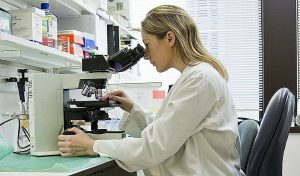Characteristics Of A Good Scientist: A scientist is a person who practices science which is the discipline of publicly testing ideas using systematic protocols such as observation, controlled experiment and inference in providing verifiable answers to pragmatic ideas. A scientist is therefore someone who has specific knowledge and experience of a scientific field.
Having a degree in science may not be enough to qualify as a scientist for the purpose of this discourse. Being a scientist requires experience of research and experimentation in the field of science. The purpose of science is to discover the truth. The truth can only be discovered through research, observation and experiment which are incidental processes to the study of science. Being a scientist does not necessarily require having a degree in sciences, although it may be an advantage. Vast majority of scientists have science degrees while some do not.
A scientist makes use of scientific method to answer questions regarding the measurable universe. A scientist may be involved in original research and discovery of a pragmatic theory or invention. He can as well be a person who makes use of results of the research of other scientists. What then does it take for one to qualify as a good scientist? Science by its very nature has some demands. For s scientist to successfully meet up with these demands, certain qualities are needed to be possessed by him. These are characteristics which are attributable to a goo scientist. These characteristics will always have impact on the accuracy and end result of a product of science.
Recommended: Most technologically developed countries in the world
Characteristics of a good scientist
1. Curiosity: A good scientist should have an inherent sense of curiosity and wonder. Science is all about asking universal questions and arriving at the truth. Curiosity is considered the most important trait of a good scientist. A good scientist needs curiosity in order to learn, and then more curiosity in order to add knowledge to his old or already existing knowledge. Science is said to be the mother of all inventions, and of course it is.

The ability to invent ideas and put them into work arises from the act of curiosity. Curiosity is the act of inquisitiveness. It is an inherent tendency to ask and learn about things by asking questions about them and exploring means to arrive at an answer as accurate as possible. This is exactly what science does. One cannot claim to be a practicing scientist when he lacks this attribute of inquisitiveness into the nature. A good scientist must always have a craving for knowledge.
2. Detail-Oriented: the nature of science demands that attention must be paid to every detail during observation, experimentation and other scientific methodologies. Therefore, being a good scientist demands being detail-oriented. For one to be detail-oriented, he needs to be well informed on that specific field. Therefore, a scientist must be specifically informed in the field of science.

Also see: Advantages and Disadvantages of Being a Doctor
3. Good Communication Skill: effective practice of science requires effective communication. It is through communication that issues are observed and hypothesis formulated. It is also through communication that the result of an experiment is relayed. Communication is an integral essential of science. Thus, a goof scientist must possess the ability to communicate skillfully. The effect of miscommunication is fatal to the purpose and process of science.
4. Patience: science takes a lot of time and process in order to arrive at the conclusion stage. Patience is therefore required in order to make a good scientist.

Also see: Countries with the best education system in the world
5. Logical and Critical thinking: science is dependent of what the brain can figure out. It follows therefore that in order to arrive at a most possible accurate result, a good scientist must be logical in reasoning. The dots must connect at all times. A good scientist must be a critical thinker. This relates to asking questions and proffering solutions to them. A good scientist must be open to the already established and undisputable scientific methodology.

6. Persistence: The innovations we see today were not actualized in one day. They are products of ideas that were nurtured and subjected to scientific exercises. Even after the end result was attained, further researches were still being made for the purpose of their enhancement.
All the successful inventions of science are products of persistence. Michael Faraday could not have arrived at something as beautiful as electric current if he was not persistent. The process of science involves so many ups and downs. Failures may be encountered at some point in the process. It is the act of refusing to give up on trials that the conclusion stage of science is attained in respect to a particular project. Science does not relent, therefore a scientist should not.
Also see: Most expensive universities in the world 2022
7. Courageousness: science involves a lot of risks. It demands courage to get involved n sciences amidst all those risks. There are risk of failures, waste of experimental resources, risk of personal injury, and so on, yet, only a courageous person can get involved anyways. Courageousness is an essential attribute of a good scientist.

8. Target-Oriented: A good scientist must have a focus. There has to be a well defined objective intended to be achieved. He must therefore be such that is motivated by the end result as opposed to being discouraged by the process. The process of attaining the result may always prove discouraging, but being target-oriented is an attraction that encourages persistence and courageousness. A scientist must therefore be target-oriented.
Recommended: Best science courses to study in the university
9. Analytical: a scientist must possess analytical skill. This is a skill indispensable in the scientific process. A good scientist must be able to analyze date compositions and uses both in the course of the experiment and in the course of reports. This also extends to having organizational skill and problem-solving skill.
10. Open-Minded and free from Bias: A good scientist must be such that is willing to consider new and different ideas or opinions. He must also be impartial and unbiased in his scientific process and reports.
11. Skepticism: scientists must possess an attribute of skepticism to a reasonable extent. A scientist must be skeptical at some point even in respect to his own research and end result. This is necessary to raise doubts that will eventually create questions and proffer solution to them concerning their research and even other established theories.
Scientists do not accept a face value answer even when it proves conclusive. Scientists should not be quick to make judgment especially when it is based on mere speculation. The communication of a scientist’s judgment must be based on verifiable evidence. This quality of skepticism is what ignites the need to make further research even in respect to an already established truth, thereby enhancing accuracy and the verifiable attribute of science.
Recommended: Most dangerous prisons in the world
Conclusion
A good scientist must take some risk and must of course have a solid base of knowledge of science, a sharp intellect and a fierce drive fueled by a passion for research. His curiosity must be insatiable; he ought to be optimistically stubborn and constantly willing to be informed.
A scientist should have passion for the field, practice and the study of science. It is only the passion that can ignite and sustain one’s interest and target in science. These are the attributes that actually makes science practicable, otherwise, science would be faced with a lot of irregularities and conflicts.

Edeh Samuel Chukwuemeka, ACMC, is a lawyer and a certified mediator/conciliator in Nigeria. He is also a developer with knowledge in various programming languages. Samuel is determined to leverage his skills in technology, SEO, and legal practice to revolutionize the legal profession worldwide by creating web and mobile applications that simplify legal research. Sam is also passionate about educating and providing valuable information to people.